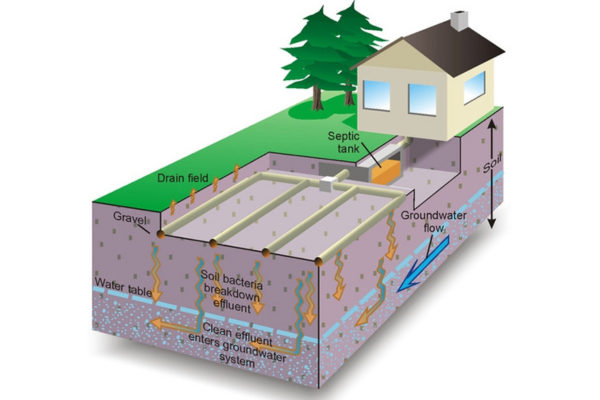Common Septic System Problems and How to Fix Them
Septic systems are essential for homes that are not connected to a municipal sewer system. They help manage household waste and keep the environment clean. However, like any other system, septic systems can encounter problems. In this article, we will discuss some of the most common septic system problems and how you can fix them.
Clogged Pipes
One of the most common issues with septic systems is clogged pipes. This can happen due to a buildup of solid waste, grease, or other debris in the pipes. When the pipes are clogged, wastewater cannot flow properly, leading to backups and potential damage to the system.
How to fix it
To fix clogged pipes, you can try using a plumbing snake to break up the blockage. You can also use a septic-safe drain cleaner to help dissolve the buildup. If the clog is severe, you may need to call a professional to help clear the pipes.
Leaking Tank
Another common problem with septic systems is a leaking tank. This can happen due to old age, corrosion, or damage to the tank. A leaking tank can lead to contamination of the soil and groundwater, posing a risk to the environment and your health.
How to fix it
If you suspect your septic tank is leaking, it is essential to call a professional immediately. They will be able to assess the situation and determine the best course of action. In some cases, the tank may need to be repaired or replaced to prevent further damage.
Drainfield Issues
The drainfield is an essential part of the septic system, where wastewater is filtered and absorbed into the soil. If the drainfield becomes clogged or saturated, it can lead to sewage backups and foul odors in your yard.
How to fix it
To prevent drainfield issues, make sure to avoid planting trees or shrubs near the drainfield. You can also reduce water usage and avoid flushing items like grease or non-biodegradable materials down the drain. If you notice signs of a clogged drainfield, such as soggy spots or foul odors, contact a septic system professional for help.
Overloading the System
Overloading the septic system can lead to a host of problems, including backups, odors, and system failure. This can happen if you have a large household or if you use a lot of water and flush non-biodegradable items down the drain.
How to fix it
To prevent overloading your septic system, make sure to limit water usage and spread out laundry and dishwasher loads throughout the week. Avoid flushing items like paper towels, feminine hygiene products, or cooking grease down the drain. If you suspect your system is overloaded, consider upgrading to a larger tank or installing a secondary treatment system.
Conclusion
Maintaining a septic system is essential to ensure it functions properly and avoids costly repairs. By being aware of common septic system problems and taking preventive measures, you can extend the life of your system and protect the environment. If you encounter any issues with your septic system, don’t hesitate to reach out to a professional for help.

